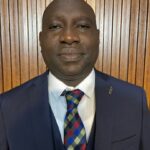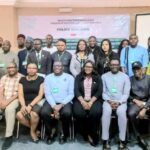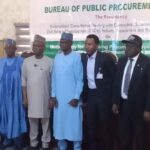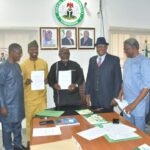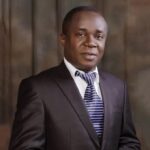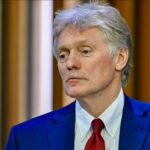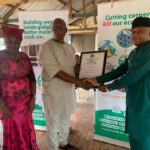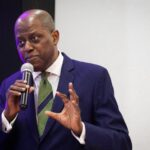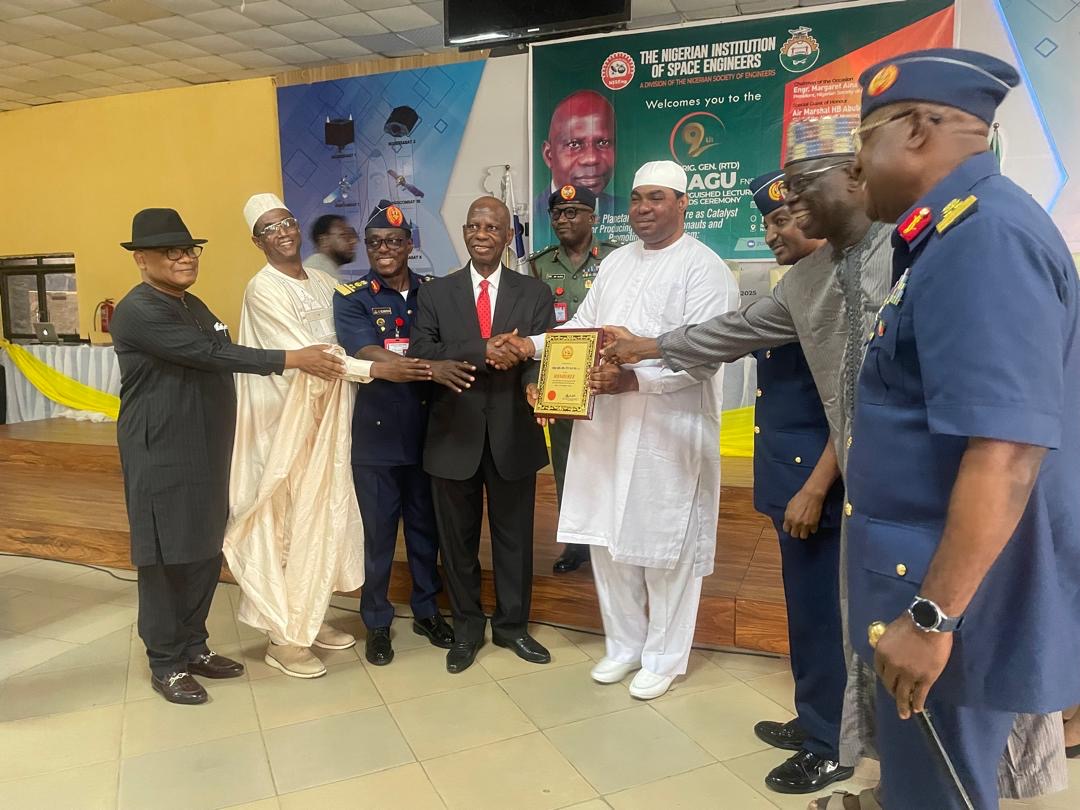By Ijeoma Olorunfemi/Olasunkanmi Onifade
Stakeholders in the space engineering have called for increased investment in planetarium infrastructure to boost its potential to contribute to the nation’s economic development.
They made the call at the 9th Brig.- Gen. Michael Agu annual lecture and awards ceremony organised by Nigerian Institution of Space Engineers (NISEng) in Abuja on Tuesday.
The theme of the lecture was “Planetarium Infrastructure as Catalyst for Producing Potential Astronauts and Promoting Space Tourism: Lessons for Nigeria.”
A planetarium is a theatre built primarily for presenting educational and entertaining shows about astronomy and the night sky or for training in celestial navigation.
Prof. Benjamin Ayatunji, Director, Physical and Life Sciences, National Space Research and Development Agency (NASRDA), said the space economy had been projected to hit one trillion dollars by 2040.
“Space economy is the fastest growing sector of economy globally and is projected to be around one trillion economy by 2040.
“The first thing planetarium does is what you call the intangible and the intangible is developing the manpower to run the space economy and Nigeria needs the manpower.
“Space planetarium will help to excite the mind of young ones and make them to take up careers in the area of space science and technology and by that Nigeria will have an access into the space economy.
“Planetarium can be a source of revenue for the country and we are talking about a country with population of probably around 230 million people with 70 per cent being below 30,” he said.
According to him, there is a large market in that area in Nigeria and West Africa because Nigeria has only one planetarium with the other one located in Ghana, adding that it can promote other businesses with multiplier effects on the economy.
Mrs Margaret Oguntala, President, Nigerian Society of Engineers (NSE) recognised Agu as a pace setter who had contributed immensely to the Nigerian engineering ecosystem.
Represented by Dr Dauda Okodugha, Vice-President of NSE, Oguntala commended NISEng for its contributions towards the growth and advancement of space engineering and management in Nigeria.
“Through your work, you have continued to set new benchmarks in professional excellence and practical innovation.
“Your initiatives are raising national awareness about the critical need to effectively manage space institutions,infrastructure in ways that promote sustainability in our engineering systems.”
Prof Matthew Adepoju, Director-General, National Space Research and Development Agency (NASDRA) said the theme of the lecture aligned with the agency’s mandate,
The agency is tasked with the responsibility of inspiring the next generation of space scientists and integrating space science for national development.
Represented by Dr Yusuf Olatunbosun, Director, Special Duties, Adepoju said NASDRA remained a committed partner in fostering capability, building research collaboration and public engagement towards achieving Nigeria vision as a leading space faring nation in Africa.
Mr Babalola Kayode, National Chairman of NISEng, said planetariums were not just for entertainment but infrastructure to invoke interest in space science and technology.
“Planetariums are gateways to imagination, learning and innovation and they are the first point of contact where curiosity meets possibility, where a child’s wonder transforms into the dream of becoming a scientist, an astronaut or a space engineer.
“Beyond the educational value, planetariums represent vital infrastructure in development that enhances developing a sustainable and inclusive space ecosystem.
“They strengthen our capacity for scientific research, STEM education and economic diversification through the emerging global industry of space tourism,” he said.
The chairman called for adopted to global best practices in developing planetariums and actionable strategies in modern day space technology.
Agu said planetarium, astronomy and space tourism needed to be brought into limelight to educate Nigerians on their contributions to economic development.
Delighted by the lecture in his honour, he said the annual lecture was an opportunity to attract government attention on space science and technology initiatives.
Highlight of the event was fellowship awards given to 16 members of the institution.(NAN)
Edited by Uche Anunne

